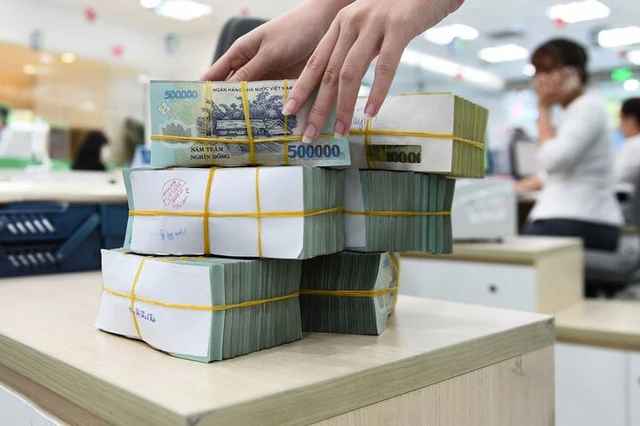Data from the rating agency FiinRatings showed that credit growth for the whole economy was 15.08 per cent last year, while credit growth for real estate developers was up to 28.5 per cent, four times higher than credit for home buyers.

HÀ NỘI — Bank credit is still flowing rapidly into the real estate sector and can boost the economy, but capital needs to be directed into housing segments with high demand to maintain stability and sustainability for both the financial and realty markets, experts have warned.
Data from the rating agency FiinRatings showed that credit growth for the whole economy was 15.08 per cent last year, while credit growth for real estate developers was up to 28.5 per cent, four times the credit growth for home buyers.
Some banks are still promoting real estate lending, especially to real estate developers in the high-end segment. In fact, according to Deputy Chairman of the Vietnam Real Estate Association Nguyễn Văn Đính, the high-end real estate segment currently has easier access to bank loans than social housing projects or housing for people who need it most.
Meanwhile, demand for social housing is much higher than demand in the high-end segment, causing a demand imbalance in the market.
Đính said that quadrillions of Vietnamese đồng in bank credit have flowed into real estate, but many developers and projects in the sector still lack capital. Meanwhile, the high-end real estate segment has easy access to capital, causing a serious imbalance in supply. Adjusting capital flows is therefore an urgent matter.
In addition, a large number of construction projects are being implemented, but many of them are facing legal problems, causing capital to get stuck. Only when legal and financial difficulties are resolved will the cash flow return to banks, helping to improve the efficiency of credit operations.
Nguyễn Nhật Hoàng, manager of Corporate Sector Ratings at FiinRatings, noted that people's ability to pay is a worrying issue when the housing price-to-income ratio has approached the level of other major cities in Asia.
Ensuring housing prices are consistent with income in the long term will help maintain sustainable demand as well as investor confidence, Hoàng said.
Deputy Chairman and General Secretary of the Vietnam Banks Association Nguyễn Quốc Hùng agreed, stating that if housing prices continue to rise to a virtual price level with unreal transactions, banks will not be able to lend. At that time, even potential real estate projects will have liquidation difficulties.
To minimise these risks, the State Bank of Vietnam (SBV) is aiming to increase credit flow to housing segments with real demand. The SBV is accelerating the implementation of a VNĐ145 trillion credit package for social housing loans, along with a home loan programme for young people under 35 years old with preferential interest rates of 1-3 per cent per year lower than that of normal loans.
Along with these measures, the SBV is also strengthening the supervision of potentially risky loans, especially for banks with close relations with real estate businesses.
The Government has recently also requested the SBV to step up inspection work, especially of joint stock commercial banks that have enterprises and real estate enterprises in their ‘backyards’. — BIZHUB/VNS
- Tags
- banking





